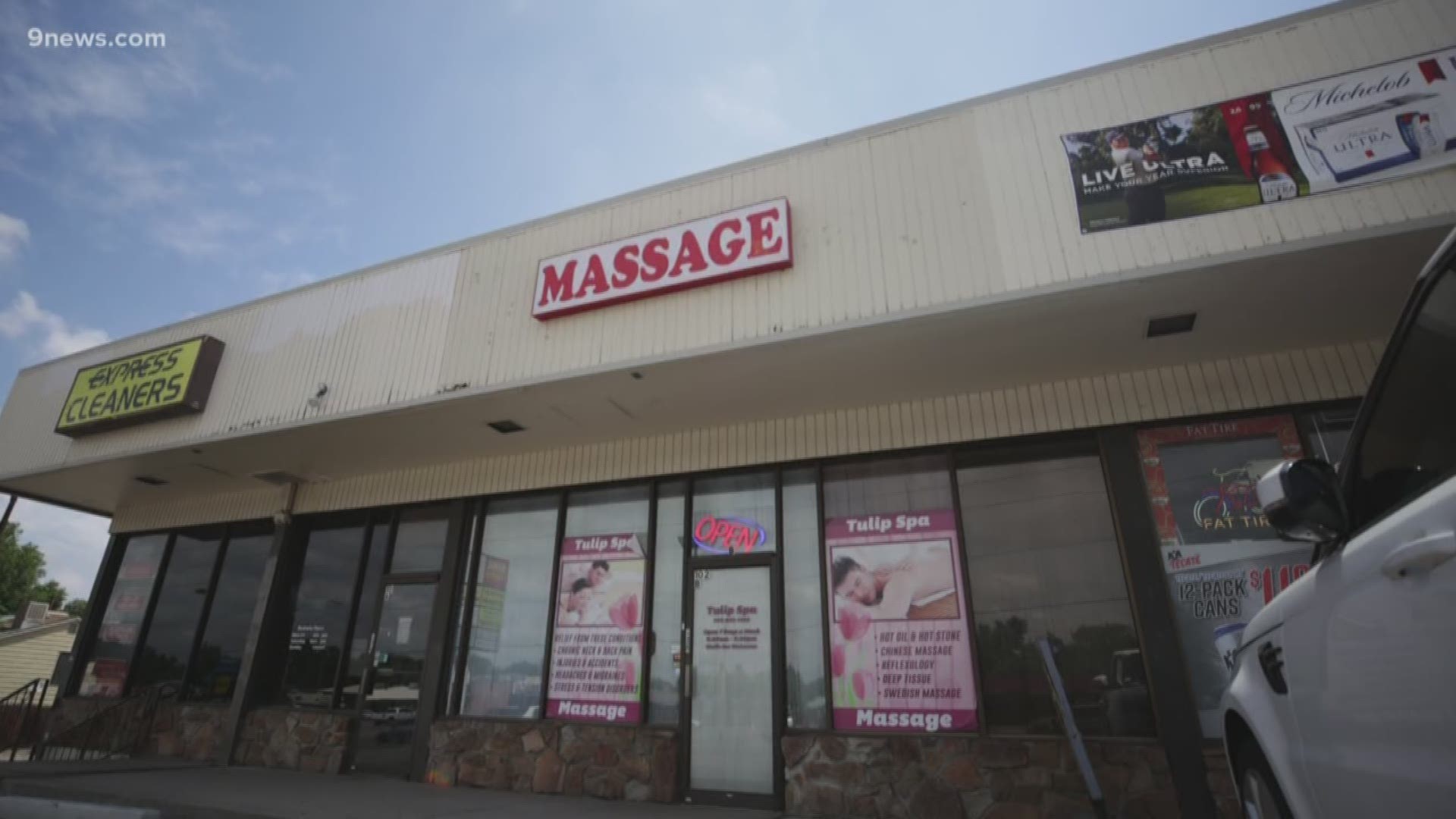AURORA, Colo —
Lawmakers in Aurora based its 2018 illicit massage business ordinance on recommendations published by The Polaris Project in 2018, an international organization created to combat human trafficking. The NoVo Foundation “made this report possible” through financial support. The NoVo Foundation said on its website that it aims to transform the world from “domination and exploitation to one of collaboration and partnership.”
“This approach ensures that every future operation represents another step away from repetitious low-level arrests that typically only penalize potential victims, towards a future where traffickers are held accountable and our communities become inhospitable to them,” wrote Rochelle Keyhan, director of disruption strategies at Polaris.
Aurora’s ordinance went into effect on May 21, 2018. It allows the city to inspect all massage businesses to ensure every masseuse has a state license. The new ordinance also requires parlors to keep detailed logs of massages and requires employees to be fully clothed.
Sexual acts and advertisements that imply sex can be bought during massages are also prohibited. The ordinance even restricts operating hours - shops have to close their doors from 10 p.m. to 5 a.m.
RELATED: Businesses shut down for suspected human trafficking in Aurora reopen just a few miles away
Trevor Vaughn, the manager of Aurora’s Tax and Licensing department and one of the architects of Aurora’s ordinance, said the Polaris Project’s report was crucial to building the legislation’s momentum.
“It really helped us get educated and helps us educate others in regards to the issue and how regulations can play an impact in addressing this and preventing these illicit operators from functioning,” Vaughn said.
The Polaris Project recommended Aurora’s method of increased ordinances and municipal regulations as the most effective one in the 2018 Full Report on Human Trafficking in Illicit Massage Businesses. A business-centered approach creates a paper trail that can be used to build a criminal case and allows inspectors “consistent and unhindered access” to the businesses.
“Code enforcement has the power to be especially effective because it shifts the focus away from potential victims, toward the parties - traffickers and landlords - who profit from and maintain control over the operations,” the Polaris Project said in the report.
The report explains prostitution stings focused on the massage therapists often don’t cut to the core of the problem. Businesses that are fronts for trafficking and prostitution can still operate because they still have their licenses. Potential victims are left to face the consequences of prostitution charges instead of the traffickers.
“Not only will this shift allow law enforcement to take down entire trafficking networks, but it will inherently limit the proprietorial reliance on survivors’ trauma as the backbone of their cases,” the report said.
Vaughn said he hopes more people read the report.
“Maybe it’ll help people understand that the illicit massage businesses aren’t a joke,” he said. “There are people who are basically slaves to these places and are suffering.”
SUGGESTED VIDEOS | Investigations from 9Wants to Know



